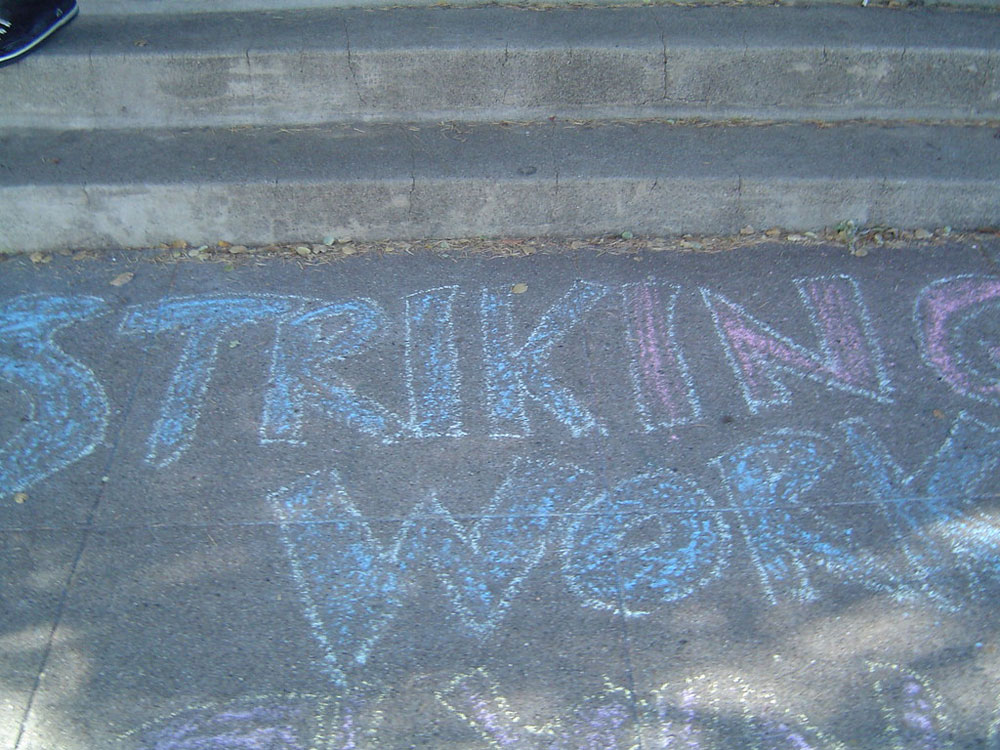
June 3, 2019; ThinkProgress
On Monday, West Virginia’s state senate passed SB 1039, the Student Success Act, over the protests of teachers and advocates from across the state. The bill contains several parts, but two of its provisions have enraged teachers’ unions and others. One would allow for public funds to be allocated to charter schools and ESAs, which are basically vouchers for private schools. The other allows a school board to punish teachers for striking and keeps schools open during strikes.
The bill would do a few things: It increases teacher pay and mental health funding for students, but it also lowers the amount of guaranteed instructional time and, as noted above, punishes teachers for striking by allowing school boards to withhold their pay or fire them altogether. It would also allow the state legislature to amend or ignore recommendations by the state’s Board of Education.
Technically, strikes were already illegal in West Virginia, thanks to a 1990 court case that ruled there is no right to strike against the state for public employees. However, in both 2018 and 2019, teachers ignored that ruling. (Federal rights to strike are complicated and depend case by case, but generally, workers striking for better conditions like higher wages or unfair practices are protected.)
Fred Albert, president of the West Virginia chapter of the American Federation of Teachers (AFT), called the provision “pure retribution, retaliation” for the strikes teachers have organized the past year and a half.
West Virginia started the wave of #RedForEd protests that swept the country last year; teachers in Kentucky, Arizona, Colorado, Oklahoma, California, and more took to their state capitals to demand better pay, control of charter school growth, and more resources for their students such as nurses, librarians, and counselors. After the strikes resulted in commitments from state legislatures, some, like West Virginia, are retaliating.
Nicole McCormick, a music teacher, president of the Mercer County Education Association, and member of the WV United Caucus, told Eric Blanc at Jacobin magazine, “Obviously, this is meant to scare us and to control us. And there are a whole number of other bad parts in the Act, including rolling back seniority rights and raising the cap on class size.”
Sign up for our free newsletters
Subscribe to NPQ's newsletters to have our top stories delivered directly to your inbox.
By signing up, you agree to our privacy policy and terms of use, and to receive messages from NPQ and our partners.
McCormick added that because it has been disproportionately hit by the opioid crisis and has historically been a poorer state, West Virginia needs more resources devoted to its students, stronger unions, and a stronger social safety net for parents. West Virginia ranks near the bottom of the nation in teacher pay and in overall school performance, but has the third-highest high school graduation rate.
“Privatization is being pushed from the outside by billionaires through groups like Americans for Prosperity,” she said. “It’s infuriating. I’m seething. I’m so angry, especially because it’s clear that West Virginians don’t want this. This is being pushed by eighteen Republican senators on behalf of their corporate donors.”
However, McCormick assured Blanc that the strikes have reenergized union participation. Originally, some Democratic senators had been willing to consider allowing charters to open in the state, but the teachers’ union pressured them not to accept it.
Senator Patricia Rucker, one of the bill’s cosponsors, made the condescending comment, “We have been accused of not listening. I have to apologize if I sometimes slip into teacher mode. But listening is not the same…as agreeing. We can listen and we can agree or disagree….I’m here to represent more than just the unions in West Virginia.” But it’s not about working for the unions; it’s about working for the students, teachers, parents, and all citizens who would benefit from schoolchildren who are educated and supported in well-resourced schools. Framing the problem as union troublemaking harks back to the education debate five years ago, when governors like Chris Christie (New Jersey) and Scott Walker (Wisconsin) blamed teachers’ unions for troubled schools.
Additionally, as McCormick pointed out, “The state held public town halls all across West Virginia, and 88 percent of those in the forums—most participants weren’t even school employees—said they didn’t want charters or ESAs.” So really, it’s not just the unions.
We see a parallel here with a story we reported yesterday: several states, most recently Pennsylvania, proposed bills that make it a crime to protest or interfere with pipeline construction. Elly Page of International Center for Not-For-Profit Law called the bills “far and away more extreme,” a description that could be applied here. Why do lawmakers feel empowered (and moved) to criminalize federally protected rights, especially those that, as Libby Watson of Splinter puts it, have “proved to be the most successful and effective method of exerting control over [protestors’] lives”? What is it about this moment that allows such pandering to moneyed donors at the obvious expense of the public good?—Erin Rubin













